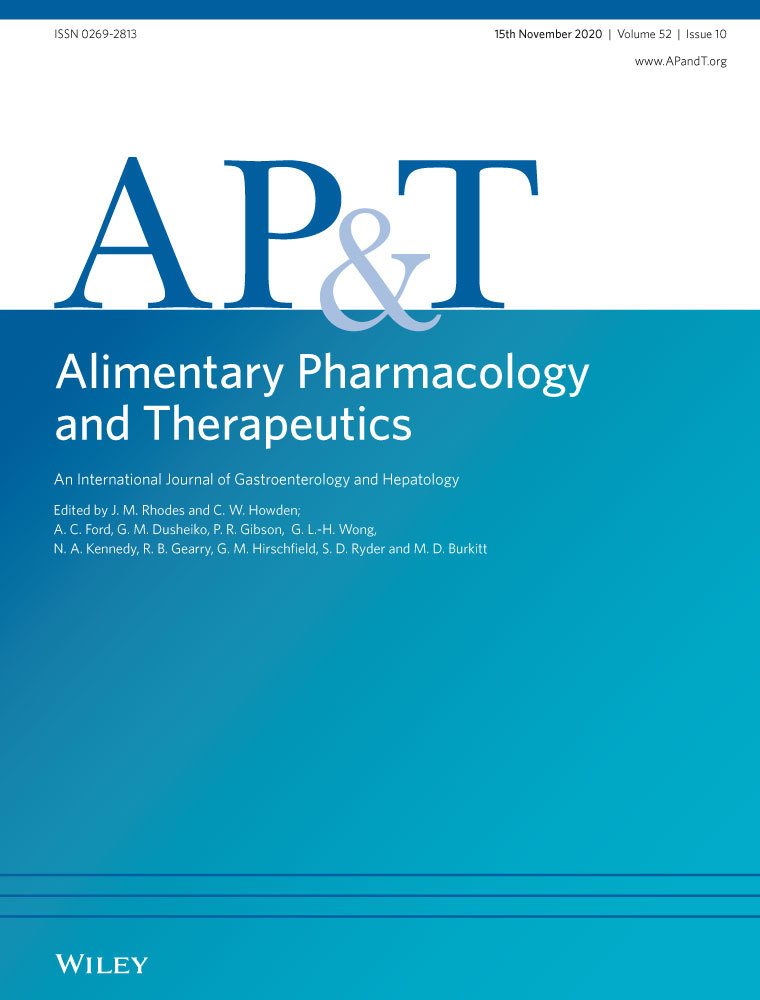Infliximab, adalimumab and vedolizumab concentrations across pregnancy and vedolizumab concentrations in infants following intrauterine exposure
The collaborators of PICCOLO Study Group are listed in Appendix A.
The complete list of authors' affiliation are listed in Appendix B.
The Handling Editor for this article was Dr Nicholas Kennedy, and it was accepted for publication after full peer-review.
Funding information
This work was supported by the Departments of Gastroenterology at St Vincent's Hospital Melbourne, Australia and Monash University, Alfred Hospital (Melbourne, Australia), a research grant from The Gutsy Group Foundation, Australia and an Australian Government Research Training Program Scholarship (EF).
Summary
Background
The impact of pregnancy on levels of biologic agents in patients with IBD is undefined and time to elimination in vedolizumab-exposed infants is unknown.
Aims
To determine the effect of pregnancy on infliximab, adalimumab and vedolizumab levels and to study infant vedolizumab clearance
Methods
In a prospective observational study, maternal drug levels were measured pre-conception, in each trimester, at delivery and postpartum. The association between drug levels and gestation in weeks was assessed using generalised estimating equation modelling. Infant vedolizumab levels were performed at birth (cord blood), 6 weeks and 3 months or until undetectable.
Results
We included 50 IBD patients (23 on infliximab, 15 on adalimumab and 12 on vedolizumab) with at least two intrapartum observations, plus 5 patients on vedolizumab with only mother and baby samples at delivery. Modelling showed no change in adalimumab levels, an increase in infliximab levels of 0.16 (95% CI 0.08-0.24) µg/L/week (P < 0.001) and a decrease of 0.18 (95% CI: −0.33 to −0.02) µg/L/week (P = 0.03) for vedolizumab. In 17 mother-baby pairs, median infant vedolizumab levels at birth were lower than maternal levels (P < 0.05) with an infant:maternal ratio of 0.7 (IQR 0.5-0.9). Vedolizumab was undetectable between 15 and 16 weeks of age in all 12 infants completing follow-up testing.
Conclusions
During pregnancy, adalimumab levels remain stable, while infliximab levels increase and vedolizumab levels decrease. However, the increments were small suggesting that intrapartum therapeutic drug monitoring and dose adjustment are not indicated. Unlike infliximab and adalimumab, infant vedolizumab levels are lower in cord blood than in mothers and appear to clear rapidly.




